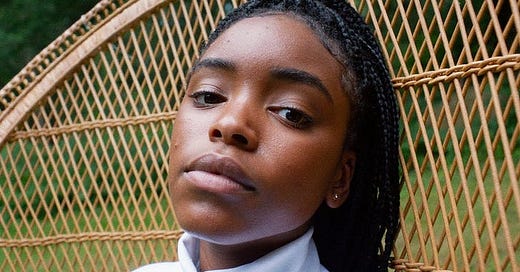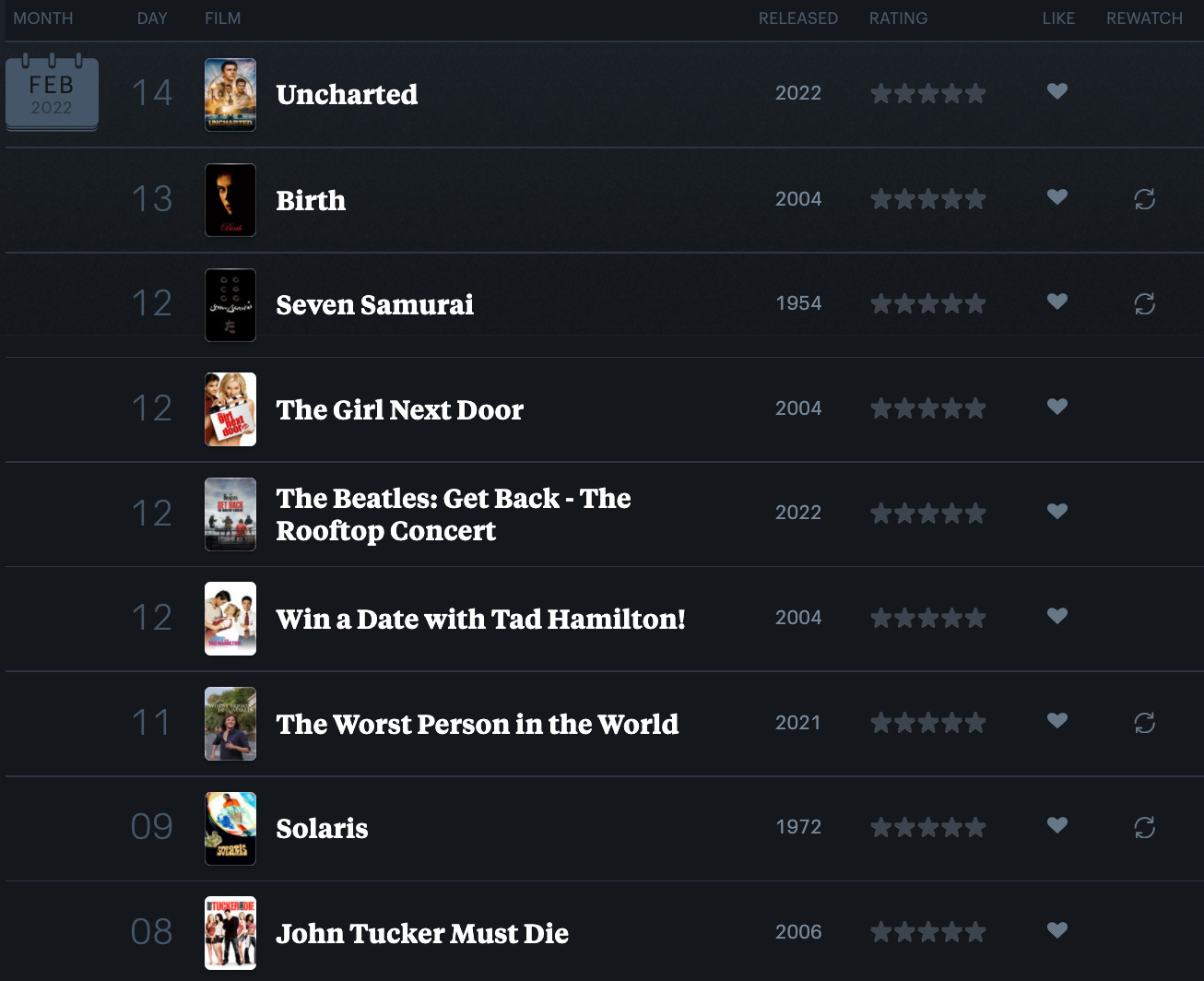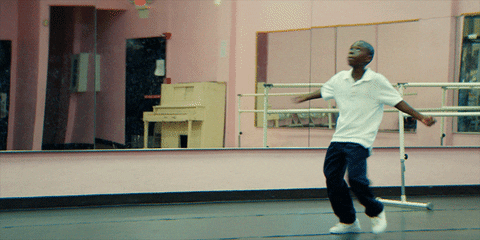‘Tis the season…
There’s a way to celebrate Black History Month that doesn’t center on historical trauma or take a view of Black characters that limits them into subjugated roles. For today’s newsletter, I’ve rounded up ten films that make up an alternative canon apart from the well-known names like Spike Lee, Steve McQueen, Barry Jenkins, and Ava DuVernay. It’s divided half between classic and contemporary selections because while Black directors have made long overdue gains in recent years, there are many great works from decades past that deserve canonical consideration.
THE CLASSIC
Within Our Gates, Oscar Micheaux (available on Criterion Channel)
The popular narrative of American — and cinematic — history would have you believe that D.W. Griffith’s The Birth of a Nation dropped in 1915 and faced no pushback for its inflammatory racist content. But in 1920, Oscar Micheaux’s Within Our Gates offered a direct rejoinder to the Klan-glorifying narrative perpetuated by Griffith. By necessity, he had to make his film outside the Hollywood system, and they both looked and sounded rough because Micheaux did not have the luxury of reshooting. Yet there’s still something remarkable about the film, which granted Black characters agency and autonomy in their own story … even as they sat segregated in the theater to watch it.
The Story of a Three-Day Pass, Melvin van Peebles (available on Criterion Channel)
There’s a famous era of movie history known as “New Hollywood” starting in the late ‘60s when a combination of declining censorship power and the influence of European aesthetics ushered in an edgy, exciting period of American moviemaking. The movies used to epitomize this nascent period are, unsurprisingly, white works like Bonnie and Clyde and The Graduate. But in that same year, Melvin van Peebles delivered perhaps the closest approximation of French New Wave style with his slickly-made The Story of a Three-Day Pass. This tale of a Black American soldier taking a weekend’s leave and romancing a white Frenchwoman brims over with ideas and ingenuity about how to play with genre and storytelling conventions. Hopefully, its recent reappreciation will elevate the film into the historical pantheon in which it belongs.
The Learning Tree, Gordon Parks (available on Criterion Channel)
A shamefully delayed milestone: Gordon Parks became the first Black director to make a studio film in 1969 with The Learning Tree, an adaptation of his semi-autobiographical novel. In many ways, the film hits standard coming-of-age movie beats as it tracks the experiences of a Black boy growing up in Kansas, learning about himself while also having to learn about how society sees him. But the remarkable eye of Parks, who was perhaps most celebrated for his photography in the magazine Life, adds some powerful visual grace notes throughout. (In many ways, it feels like a model for what Steve McQueen accomplishes in 12 Years a Slave where he finds ways to punctuate a historical narrative with arresting moments of gallery art-inspired imagery.) I’d recommend my friend and critical compatriot Odie Henderson’s essay for the film’s recently released Criterion edition to get even more context around why the film is such a landmark achievement.
Losing Ground, Kathleen Collins (available on Criterion Channel)
It’s believed that 1982’s Losing Ground was the first feature-length film directed by a Black woman. (For those needing some help on mental math, that was only 40 years ago.) And it never even got theatrical distribution in the lifetime of director Kathleen Collins, who died of breast cancer in 1988. What’s most startling about her one film is how ordinary it feels. Not boring, mind you, but how it doesn’t require its Black characters to be anything extraordinary to merit the camera’s gaze. This is a captivating domestic drama from a perspective that went unseen for far too long.
Hollywood Shuffle, Robert Townsend (available on Amazon Prime Video)
Though 35 years old, Robert Townsend’s industry satire Hollywood Shuffle feels like it could easily be made today. That’s not necessarily a good thing, mind you, because it shows you just how little the movie business has learned to authentically represent Black perspectives. The film’s aghast, uproarious, indignant look at the subtle racism underlining the push for cosmetic inclusion now sounds like an unheeded alarm bell. I’m sure Townsend would rather his film be relegated to the dustbin of history by its own irrelevance instead of feeling as timely as it does.
THE CONTEMPORARY
Mudbound, Dee Rees (available on Netflix)
OK, here’s my one exception to the “no trauma” rule — because I simply refuse to stay silent about the monumental achievement that is Dee Rees’ Mudbound. I remain convinced that in a few decades, people will guffaw at the fact that this wasn’t nominated for Best Picture or Best Director. This poignant tale depicts two intertwined Mississippi families, one white and one Black, caught up in the intractability of the American race-class morass. They diverge and converge in equal measure, with Rees’ magnanimous filmmaking finding a way to encompass an orchestral suite of their perspectives. It’s the rare look at American history where a glimmer of hope emerges not by denying the darkness of the past but by attempting to understand it.
See You Yesterday, Stefon Bristol (available on Netflix)
What if Back to the Future, but the teenage hero needs to stop a police officer from killing her brother? Stefon Bristol’s See You Yesterday takes the format of the time travel thriller and finds unexpected emotional depth and social commentary inside of it. This clever adventure bumps up against the harsh truth that certain individual actions are not enough to surmount tremendous institutional biases. Kudos to Bristol for finding a way to convey such a message without ever lecturing his audience.
Selah and the Spades, Tayarisha Poe (available on Amazon Prime Video)
Fan of Rihanna’s “ANTI?” Then perhaps you’ll find Selah and the Spades up your alley given that director Tayarisha Poe mentioned the album’s “fierce formalism” as a key influence on the film. It’s got the same vibe as those ‘90s movies staging classical literature in high school hallways, although this one is unapologetically multiracial. Poe takes the teenagers as seriously as they take themselves, wryly observing the tussle inside Lovie Simone’s titular character as she tries to find a worthy successor for her perch atop the school’s well-defined social factions.
Clemency, Chinonye Chukwu (available on Hulu)
The last two years have drawn rightful attention to how certain social institutions have a disproportionate impact on Black communities. But many of these discussions paper over an important nuance — many Black people work inside the prison system. Clemency takes an unflinchingly human look at the dilemma faced by Alfre Woodard’s Bernadine Williams, a Black woman who serves as a prison warden, as execution proceedings move forward for a man who maintains his innocence. This is just stunning work by Woodard, who’s asked to anchor the film’s climactic scene in an unbroken close-up. The greatest special effect of all is seeing an emotional journey play out in the musculature of the face.
The Forty-Year-Old Version, Radha Blank (available on Netflix)
Netflix and other streamers have a habit of picking up films by Black filmmakers like Radha Blank’s The Forty-Year-Old Version, winner of Sundance’s Grand Jury Prize, only to dump them on their platform with little promotion or fanfare. This film deserved better than to be a tile amidst a sea of content. It’s the pronouncement of a major artistic voice in Blank, who plays a loosely fictionalized version of herself in the film. After finding little opportunity for authentic expression in art forms with white gatekeepers, she locates self-expression and self-satisfaction from a newfound calling in rap music. This coming-of-(middle-)age story is a buoyant, brilliant comedy with a lot to say about art and life.
WHAT I WATCHED
Strange moviegoing week! Love going from mid-aughts trash like John Tucker Must Die to ponderous Soviet space dramas like Solaris in consecutive days. Cinema!!
WHAT I HEARD
This Had Oscar Buzz’s class of 2021 episode is here, and it’s fantastic. If nothing else, you simply must tune in at about the four-minute mark to hear the “in memoriam” style tribute to Lady Gaga’s outrageous awards campaign moments from the trail.
Another great Talk Easy episode this week, featuring a luminous Cate Blanchett:
Also, I’ve been jamming out to The Beatles since Saturday afternoon when I saw their rooftop concert in IMAX! I’ve always liked the band, even if I’ve never given myself over to hardcore fandom, so it’s been startling to me to hear songs I knew but somehow never even attributed to them!
WHAT I READ
Two good reads to make sense of the Oscar nominations last week: Sam Adams at Slate breaks down how we’re past a turning point thanks to the influx of international voters into the Academy, while Eric Kohn at IndieWire explores how Janus Films’ creative distribution of Drive My Car helped clear the road for its Oscar breakthrough.
WHAT I WROTE
I got to spend my Valentine’s Day with Tom Holland … on screen, in Uncharted. I then turned around a review last night for The Playlist. It’s just OK as a movie, but I hope I found a way to articulate my thoughts cogently and creatively. (There are quite a few turns of phrase in there that made me quite proud, in case that motivates you to click.)
Also, subscribers got to read this conversation I had with This Had Oscar Buzz co-host Chris Feil breaking down the current state of the awards ecosystem through the warped lens of the movies that didn’t make the cut:
That’s it for today! Subscribers will get a look into my process as an interviewer in their inbox later this week.
Yours in service and cinema,
Marshall












